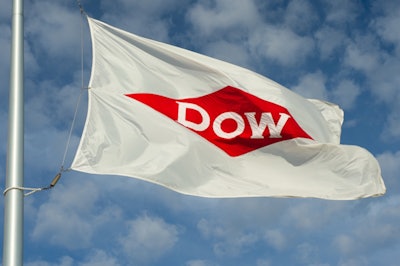
Several of the country’s biggest chemical companies recently became the target of a whistleblower suit seeking a whopping $90 billion in damages and penalties.
The suit, filed by Kasowitz, Benson, Torres & Friedman LLP on behalf of the government claims that companies including BASF, Bayer MaterialScience and Dow Chemical Company failed to disclose information to the Environmental Protection Agency about the dangers of certain isocyanate chemicals.
In particular, the 400-page complaint pertains to methylene diphenyl diisocyanate (MDI), polymeric MDI (PMDI), and toluene diisocyanate (TDI). Manufactures use this class of chemicals to produce a range of products including coatings, adhesives and flexible foam.
Manufacturers and regulators have long known that inhaling too much of the chemicals can cause injury. But the complaint alleges that between 1979 and 2003, the companies worked alone and together to conceal mounting evidence that just one drop of TDI, MDI or PMDI on the skin could also cause permanent respiratory injury in humans.
For example, the claim states:
In the mid-to-late 1970s, some researchers, including particularly Dr. Meryl Karol, a leading researcher at the University of Pittsburgh, began to suspect that isocyanate skin contact, rather than inhalation exposure, might be causing human respiratory injury in the industrial setting. In 1981, Dr. Karol published a seminal study in which she demonstrated that a minimal amount (as small as a single drop) of TDI on the skin of guinea pigs resulted in respiratory hypersensitivity in the animal model she developed.
Prior to publishing her study, and during a December 8-9, 1980 III symposium, Dr. Karol presented her findings to III member companies, including representatives from defendants BASF, Bayer, and Dow.

Keeping the information secret would have been a violation of the Toxic Substances Control Act, while not disclosing those violations is then a violation of the False Claims Act.
According to the complaint, Kasowitz decided to pursue this latest lawsuit after discovering information in a case involving 1,300 Alabama coal miners who claimed to have suffered permanent respiratory injuries from their exposure to isocyanate-based products. That case was resolved under undisclosed terms in 2010. The firm decided to pursue the whistleblower lawsuit after conducting additional investigations.
“The defendants’ cover-up implicates major human health concerns,” said Kasowitz partner Andrew Davenport, who is taking the lead on the case along with partners Daniel Benson and Lyn Agre. “The whistleblower law allows us to assist the federal government in holding these companies responsible for their actions while we also alert regulators and the public to the serious undisclosed hazards of these chemicals.”
Currently, the Occupational Safety and Health Administration states that exposure to isocyanates can cause “irritation of skin and mucous membranes, chest tightness, and difficulty breathing.” OSHA also says that the compounds have been classified as potential human carcinogens.
The firm brought the suit as a qui tam complaint, which is when a lawsuit is filed on behalf of the government.
In a statement to Law Newz, a Dow spokesperson responded to the allegations by saying: “This qui tam complaint is meritless. Dow has complied with all the federal laws and requirements referenced in the complaint. It is noteworthy that the law firm provided these allegations to the United States Department of Justice, which declined to intervene or take any action in support of the lawsuit. Moreover, the False Claims Act does not allow a claim for unassessed civil penalties.”
Davenport said that the companies currently have until Oct. 4 or 5 to respond to the complaint.






















